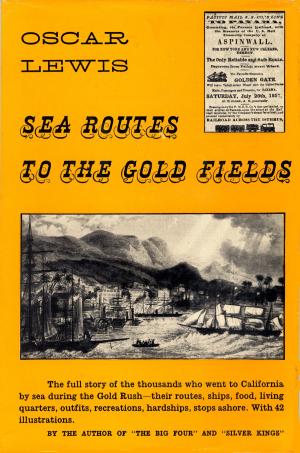| Author: | Theodore Roosevelt | ISBN: | 9788822874573 |
| Publisher: | Theodore Roosevelt | Publication: | December 6, 2016 |
| Imprint: | Language: | English |
| Author: | Theodore Roosevelt |
| ISBN: | 9788822874573 |
| Publisher: | Theodore Roosevelt |
| Publication: | December 6, 2016 |
| Imprint: | |
| Language: | English |
In the New York Evening Post for September 30, 1814, a correspondent writes from Washington that on the ruins of the Capitol, which had just been burned by a small British army, various disgusted patriots had written sentences which included the following: “Fruits of war without preparation” and “Mirror of democracy.” A century later, in December, 1914, the same paper, ardently championing the policy of national unpreparedness and claiming that democracy was incompatible with preparedness against war, declared that it was moved to tears by its pleasure in the similar championship of the same policy contained in President Wilson’s just-published message to Congress. The message is for the most part couched in terms of adroit and dexterous, and usually indirect, suggestion, and carefully avoids downright, or indeed straight-forward, statement of policy—the meaning being conveyed in questions and hints, often so veiled and so obscure as to make it possible to draw contradictory conclusions from the words used. There are, however, fairly clear statements that we are “not to depend upon a standing army nor yet upon a reserve army,” nor upon any efficient system of universal training for our young men, but upon vague and unformulated plans for encouraging volunteer aid for militia service by making it “as attractive as possible”! The message contains such sentences as that the President “hopes” that “some of the finer passions” of the American people “are in his own heart”; that “dread of the power of any other nation we are incapable of”; such sentences as, shall we “be prepared to defend ourselves against attack? We have always found means to do that, and shall find them whenever it is necessary,” and “if asked, are you ready to defend yourself? We reply, most assuredly, to the utmost.” It is difficult for a serious and patriotic citizen to understand how the President could have been willing to make such statements as these. Every student even of elementary American history knows that in our last foreign war with a formidable opponent, that of 1812, reliance on the principles President Wilson now advocates brought us to the verge of national ruin and of the break-up of the Union. The President must know that at that time we had not “found means” even to defend the capital city in which he was writing his message. He ought to know that at the present time, thanks largely to his own actions, we are not “ready to defend ourselves” at all, not to speak of defending ourselves “to the utmost.” In a state paper subtle prettiness of phrase does not offset misteaching of the vital facts of national history.
In the New York Evening Post for September 30, 1814, a correspondent writes from Washington that on the ruins of the Capitol, which had just been burned by a small British army, various disgusted patriots had written sentences which included the following: “Fruits of war without preparation” and “Mirror of democracy.” A century later, in December, 1914, the same paper, ardently championing the policy of national unpreparedness and claiming that democracy was incompatible with preparedness against war, declared that it was moved to tears by its pleasure in the similar championship of the same policy contained in President Wilson’s just-published message to Congress. The message is for the most part couched in terms of adroit and dexterous, and usually indirect, suggestion, and carefully avoids downright, or indeed straight-forward, statement of policy—the meaning being conveyed in questions and hints, often so veiled and so obscure as to make it possible to draw contradictory conclusions from the words used. There are, however, fairly clear statements that we are “not to depend upon a standing army nor yet upon a reserve army,” nor upon any efficient system of universal training for our young men, but upon vague and unformulated plans for encouraging volunteer aid for militia service by making it “as attractive as possible”! The message contains such sentences as that the President “hopes” that “some of the finer passions” of the American people “are in his own heart”; that “dread of the power of any other nation we are incapable of”; such sentences as, shall we “be prepared to defend ourselves against attack? We have always found means to do that, and shall find them whenever it is necessary,” and “if asked, are you ready to defend yourself? We reply, most assuredly, to the utmost.” It is difficult for a serious and patriotic citizen to understand how the President could have been willing to make such statements as these. Every student even of elementary American history knows that in our last foreign war with a formidable opponent, that of 1812, reliance on the principles President Wilson now advocates brought us to the verge of national ruin and of the break-up of the Union. The President must know that at that time we had not “found means” even to defend the capital city in which he was writing his message. He ought to know that at the present time, thanks largely to his own actions, we are not “ready to defend ourselves” at all, not to speak of defending ourselves “to the utmost.” In a state paper subtle prettiness of phrase does not offset misteaching of the vital facts of national history.















